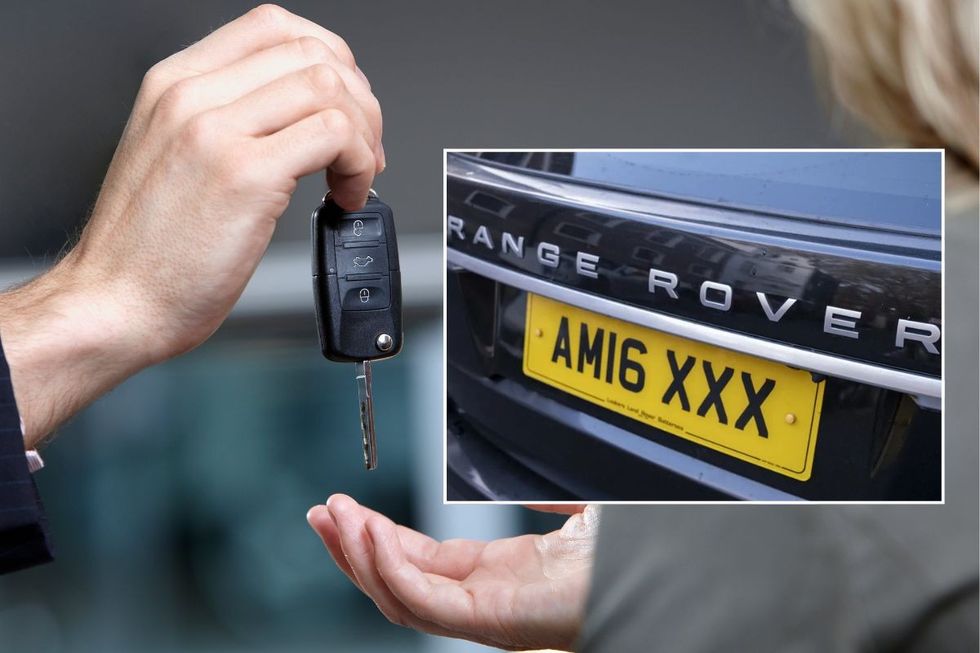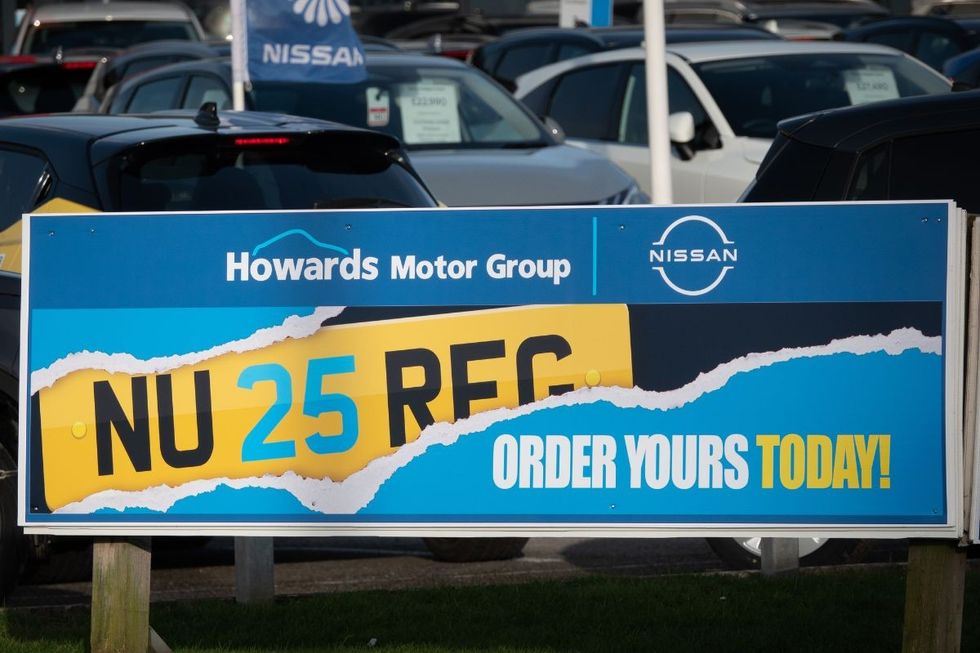Millions of drivers unaware of little-known number plate meaning as major changes launch within days

WATCH: Former Roads Minister Richard Holden hosts the DVLA's last in-person number plate auction
|DEPARTMENT FOR TRANSPORT

Older motorists were found to have the least knowledge of what number plates represent
Don't Miss
Most Read
Latest
Almost one in four drivers have admitted they don't know what the numbers and letters on a licence plate mean, just days before major changes are to be introduced.
New research has found that 24 per cent of Britons do not understand how number plates work, with the number rising to 26 per cent for drivers over the age of 55.
The data comes just days before the new "75" number plate is to be launched across the most recent models on forecourts and in dealerships.
This is part of a change which occurs every six months to signify the latest cars on the market. The "25" identifier was introduced on March 1 earlier this year.
Do you have a story you'd like to share? Get in touch by emailing motoring@gbnews.uk

Many Britons do not know what the numbers and letters on a number plate mean
|GETTY
More than 2,000 Britons were asked about number plates, with a staggering 37 per cent of drivers reporting that they did not know what the first two letters meant.
The first two letters on a standard registration plate are referred to as the "memory tag" by the Driver and Vehicle Licensing Agency (DVLA).
These outline where the car was first registered, with popular identifiers including "CA" for Cardiff, "B" for Birmingham and "S" for Scotland.
The two numbers in the middle denote the year and month of registration, such as "25" being March 2025 and "75" indicating September 2025.
 Drivers are more likely to buy a new car in March and September when new number plates launch | GETTY
Drivers are more likely to buy a new car in March and September when new number plates launch | GETTYMuch to the surprise of motorists, the three letters and chosen at random and do not have a purpose, unlike the DVLA memory tag or age identifier.
Tom Banks, car insurance spokesperson at Go.Compare, said: "It's understandable that many people would struggle to grasp the current number plate system as it hasn't always worked like this.
"Prior to 2001, number plates were only updated once a year and the 'age identifier' was a single letter."
Regarding the frequency of how often the number plates are issued, 47 per cent of survey respondents said they were either unsure or gave an incorrect answer.
LATEST DEVELOPMENTS:
- Motorway drivers slapped with fines as police admit they are 'pleased to see these people prosecuted'
- Electric car prices slashed with long-awaited rollout of £3,750 discount on popular Ford models - full list
- E-scooter laws to be introduced soon as Labour vows to 'properly regulate' controversial vehicles
Wrong responses included once a year (19 per cent), three times a year (four per cent) or even four times every 12 months (three per cent).
Experts have highlighted that it is not a legal requirement for drivers to know what the letters and numbers on a number plate mean, although it could be helpful for motorists when buying a second-hand car.
Motorists can easily spot if a second-hand car they are looking at could have issues which bring into question its validity.
For example, a seller could tell the prospective buyer that the vehicle was registered in London five years ago, despite having a number plate of SA15 ABC.

Sarah Coombes MP has called for the Government to crack down on number plates that evade traffic cameras
| PAUsing the DVLA memory tag and age identifier, motorists can work out that the car was actually registered in Glasgow between March and September 2015.
Mr Banks also called on drivers to ensure their number plates are road legal, or they could be at risk of a £1,000 fine and even fail their MOT test.
Registration plates must be made out of a reflective material and must display black characters on a white background on the front and black characters on a yellow background on the rear plate.
The expert concluded: "The fact that almost a quarter of people do not know how to identify this is concerning, particularly as the age of a vehicle is also one of the factors insurers consider when quoting for a policy."










